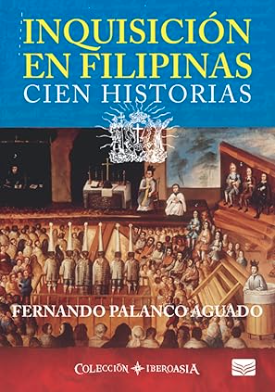La palabra inquisición sugiere con frecuencia imágenes de torturas y cuerpos envueltos en llamas. Desafiando el consabido cliché, estas historia ofrecen una visión más realista de esta institución partiendo de denuncias y procesos contenidos en los archivos de tribunal de la Inquisición de México, del cual dependían las comisarías de Filipinas. Pocas de ellas están exentas de dolor, pero entre sus líneas se cuelan embrujos, supersticiones, escándalos, amoríos, ilusiones, anhelos, quimeras, fiestas y bromas. Estos casos, además de introducirnos en la actividad cotidiana de la Inquisición en aquellos confines del Imperio hispano, nos acercan a la realidad humana y social de un mundo sorprendente.
The word Inquisition inevitably suggests images of torture and bodies engulfed in flames. However, these stories do not respond to those clichés. These stories are broken down from complaints and processes contained in the archives of the court of the Inquisition of Mexico, on which the offices of the commissioners of the Holy Office in the Philippines depended. Few of them are exempt from pain, but spells, superstitions, scandals, love affairs, illusions, longings, fantasies, festivities, and jokes creep into the shadows of pain. In short, in addition to introducing us to the daily activity of the Inquisition in those confines of the Spanish Empire, they bring us closer to the human and social reality of a surprising world.
ABOUT THE AUTHOR
Fernando Palanco (Madrid, 1956) has a degree in teaching and a doctorate in history. As a teacher, he began his professional journey in various rural schools in the province of Soria and concluded it at the Ramiro de Maeztu Institute in Madrid. As a researcher, he specialized in modern Philippine history.
About the front cover: Painting of a sentence given by the Inquisition in Mexico during the eighteenth century. All the Philippine denunciations and affairs were transmitted to Mexico, as well as the criminals sued by the inquisitors of New Spain (Wikimedia Commons). The logo of the Holy Office of the Inquisition is a work of Manolo Campoamor.
About the back cover: Facsimile of the confiscation of the property of Juan Domínguez Paniagua. Manila,10 July 1624 (AGN, Fondo Inquisición, vol. 221, exp. 3, page 121r): “On the said day, month and year, the property of the said Juan Domínguez Paniagua was seized. Since he was very poor, he was not found with more than the following: an old sword that he had in his belt, of very little value.”
